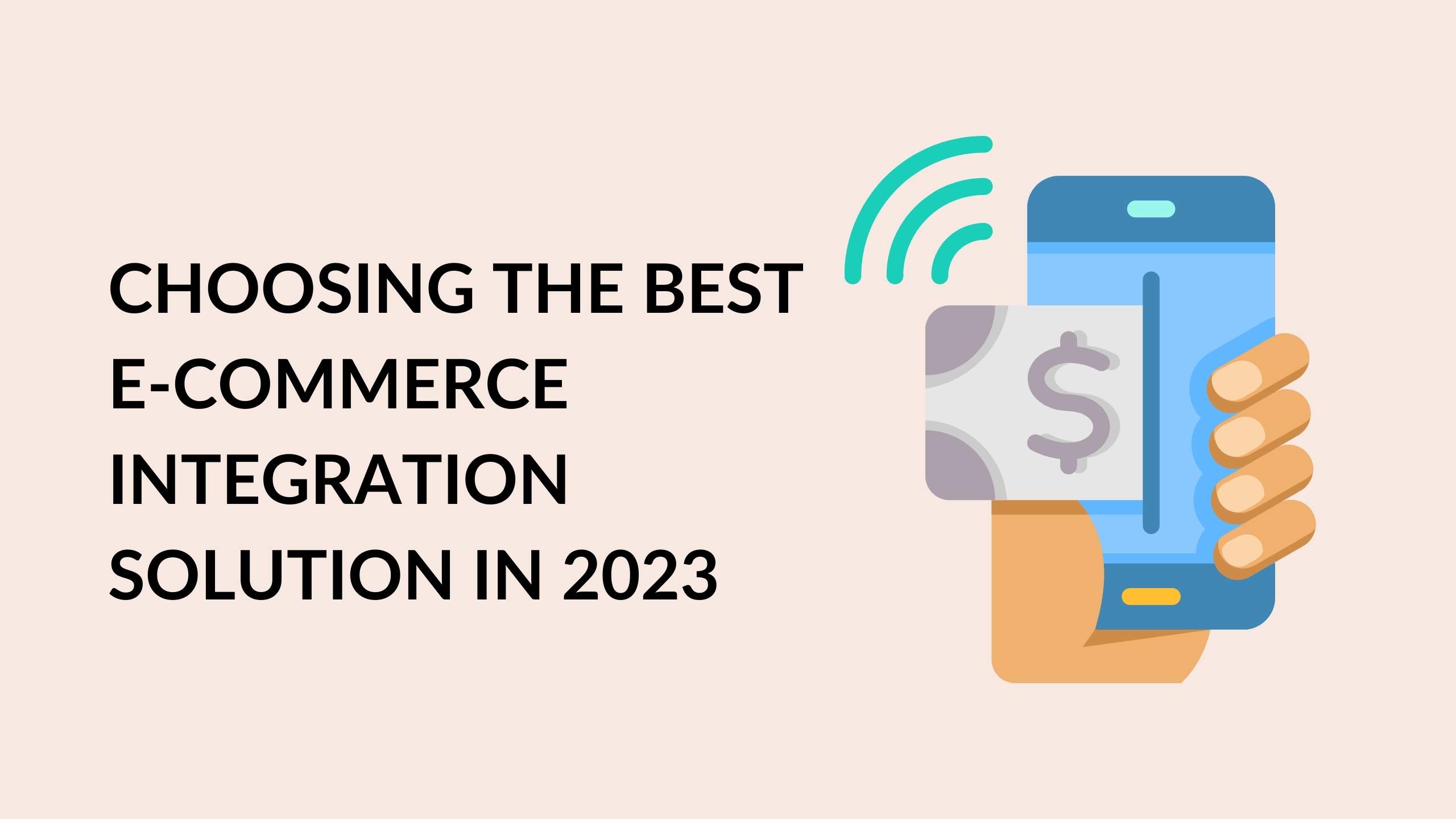Choosing the Best E-commerce Integration Solution in 2023


Choosing the Best E-commerce Integration Solution in 2023
E-commerce integration is a critical component for businesses aiming to streamline their online operations. In 2023, the market is flooded with Software as a Service (SaaS) solutions, each claiming to be the best. This guide will help you navigate the options and choose the best e-commerce integration solution tailored to your business needs.
What Defines the Best E-commerce Integration Solution?
Before diving into the recommendations, let’s establish the criteria for the best e-commerce integration solution:
- Seamless Connectivity: The ideal solution should seamlessly connect with your existing systems, ensuring a smooth flow of data and information.
- Scalability: As your business grows, the integration solution should be scalable to accommodate increased data and transaction volumes.
- User-Friendly Interface: A user-friendly interface is crucial for efficient use. The best solutions offer intuitive dashboards and easy navigation.
- Flexibility: The ability to adapt to changing business needs is key. Look for solutions that offer flexibility in terms of customization and integration with other tools.
- Reliability and Support: Choose a solution backed by reliable customer support to address any issues promptly.
Top E-commerce Integration Solutions in 2023
Now, let’s explore a curated list of e-commerce integration solutions that stand out in 2023:
1. Shopify
Shopify remains a frontrunner in the e-commerce integration landscape. It offers a user-friendly platform, extensive app ecosystem, and seamless integrations with various third-party tools.
2. Zapier
Zapier is a versatile automation tool that connects apps and automates workflows. It excels in bridging the gap between different platforms, making it a valuable asset for e-commerce businesses with diverse software stacks.
3. Magento
Magento is an open-source e-commerce platform that provides a SaaS solution. It stands out for its advanced features, customization options, and scalability, making it suitable for businesses of all sizes.
4. BigCommerce
BigCommerce is a SaaS e-commerce platform that focuses on simplifying online store management. With multi-channel selling capabilities and robust marketing tools, it caters to businesses aiming for growth.
5. WooCommerce
As a WordPress plugin, WooCommerce seamlessly integrates with existing websites. It’s known for its flexibility, allowing businesses to create customized e-commerce solutions tailored to their specific needs.
6. HubSpot
HubSpot offers an all-in-one marketing, sales, and service platform. With its CRM integrations, e-commerce businesses can streamline customer interactions, track leads, and automate marketing campaigns.
7. Salesforce Commerce Cloud
Salesforce Commerce Cloud integrates customer relationship management (CRM) with online selling. It enables businesses to deliver personalized shopping experiences, streamline operations, and enhance customer engagement.
8. ShipStation
ShipStation specializes in efficient order fulfillment. It seamlessly integrates with major carriers, automating shipping processes and providing real-time tracking information for a smooth customer experience.
9. Stripe
Stripe is a popular payment processing platform known for its seamless integration capabilities. It ensures secure and efficient online transactions, making it an ideal choice for e-commerce businesses.
10. QuickBooks Commerce
QuickBooks Commerce streamlines inventory management by integrating with e-commerce platforms. It ensures accurate tracking of stock levels and efficient order processing.
Conclusion
Choosing the best e-commerce integration solution requires careful consideration of your business’s unique needs and goals. Whether you prioritize seamless connectivity, scalability, or a user-friendly interface, the solutions mentioned above offer a range of features to cater to diverse requirements.
Evaluate each option based on your specific criteria, keeping in mind the importance of reliability and support. The right e-commerce integration solution can significantly enhance your online operations, providing a solid foundation for growth and success.








